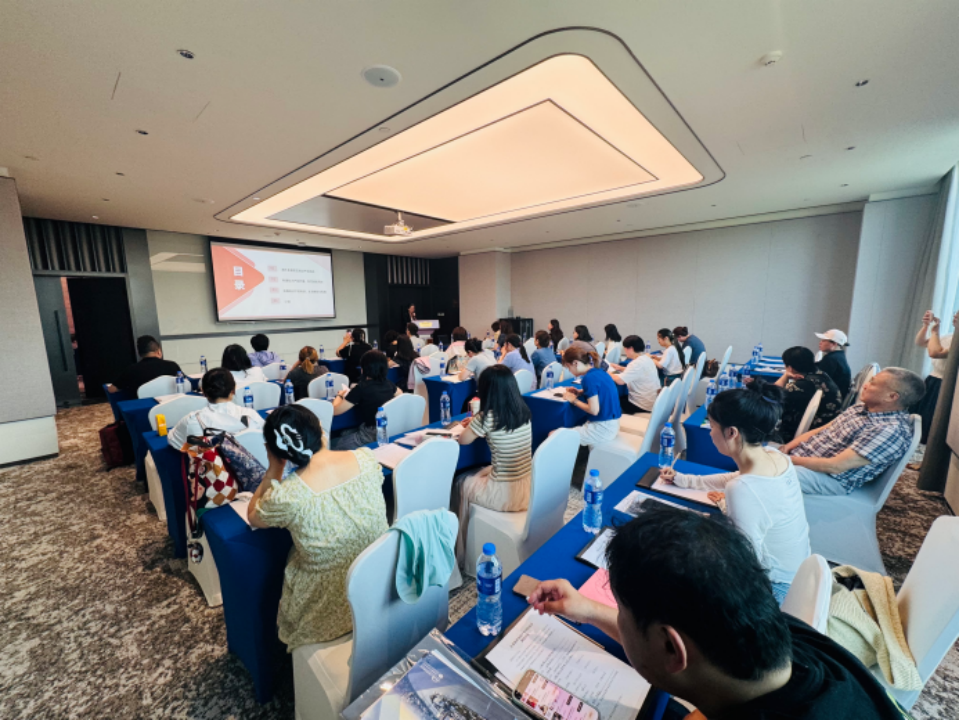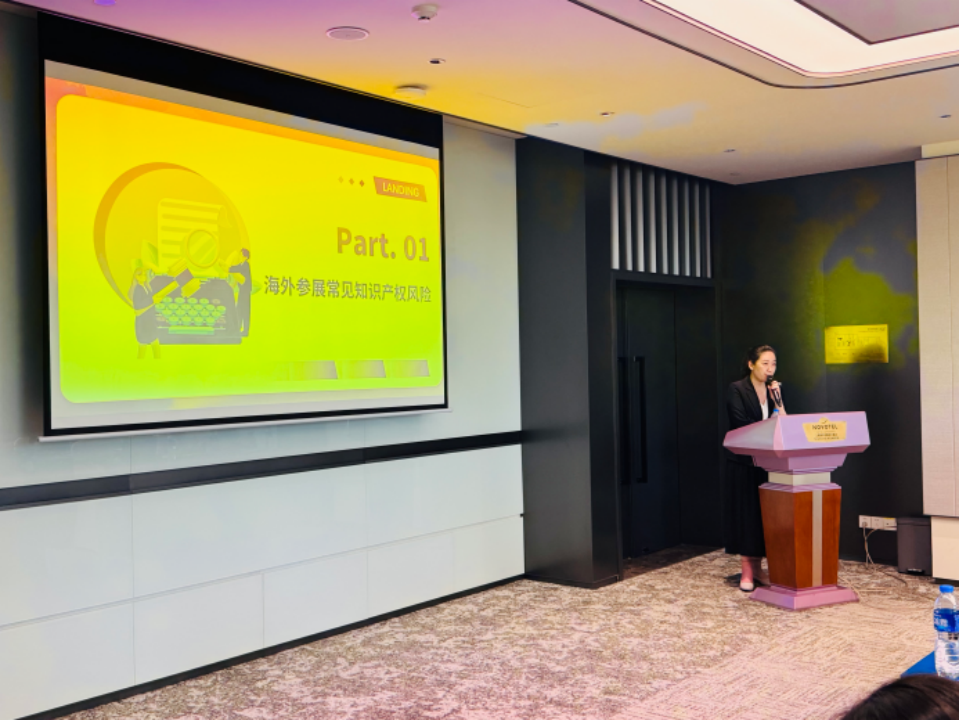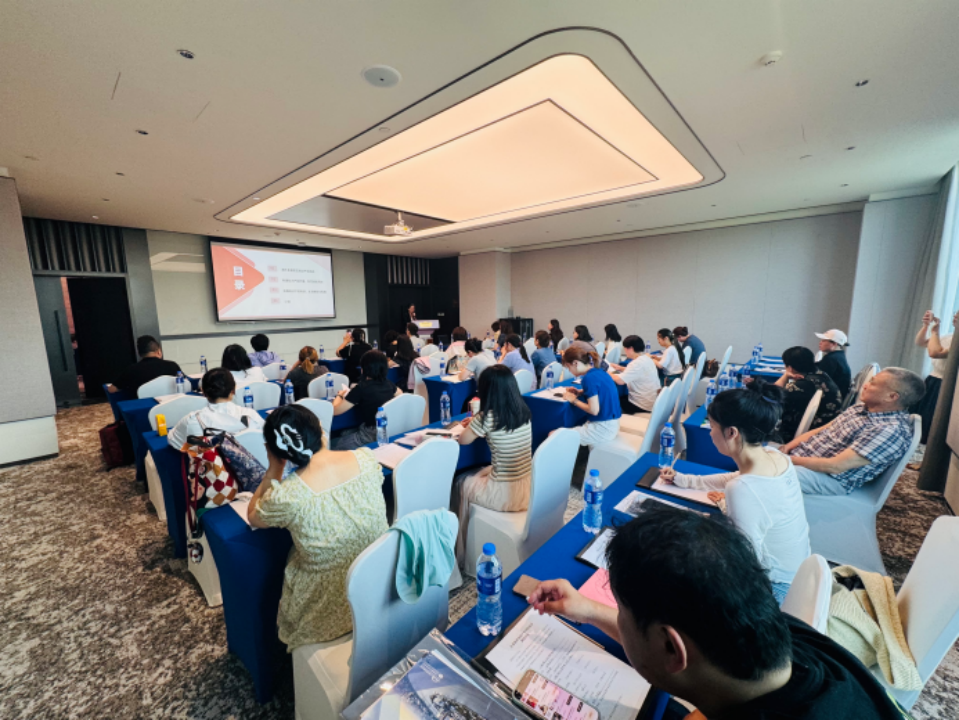On June 19, 2025, the “Policy Briefing on Special Funds for Foreign Trade and Economic Development,” hosted by the Pudong International Chamber of Commerce, was successfully held at the Novotel Atlantis Hotel. Zhang Li, Senior Partner and Deputy Director of the Intellectual Property Department at Shanghai Landing Law Offices, attended the event as a special guest. Focusing on the theme of “The Shield and the Sword for Intellectual Property Protection at Overseas Exhibitions,” she delivered a specialized training session, offering participating enterprises insights into risk prevention and enforcement strategies for intellectual property (IP) protection when exhibiting abroad.

Against the backdrop of global economic integration, companies participating in overseas exhibitions face complex IP challenges. Drawing on practical case studies, Attorney Zhang outlined four major areas of risk: trademark squatting, patent infringement, copyright disputes, and unfair competition. She highlighted high-frequency infringement scenarios common in industries such as cultural and creative arts and furniture and household goods manufacturing—such as booth design copying and brochure plagiarism—and shed light on hidden risks arising from legal system differences overseas, including “generic name infringement” and “trademark–trade name conflicts.”

Covering the entire exhibition process, Zhang proposed a three-stage prevention strategy: pre-exhibition planning, on-site execution, and post-exhibition follow-up. Before exhibiting, companies should conduct legal research on target markets, perform IP searches and analyses, prepare rights documentation, and establish contingency plans. Citing a case where a company’s failure to renew its trademark obstructed its overseas exhibition participation, she underscored the importance of early planning. During exhibitions, enterprises should remain calm when facing infringement claims, conduct professional legal assessments of rights stability, and train employees on IP compliance to avoid infringing acts. After exhibitions, proper archiving and evidence preservation are essential, alongside continuous improvements to corporate IP management systems.
On proactive enforcement, Zhang elaborated on three key approaches to evidence collection: physical evidence (multi-angle photography of suspected infringing products with professional equipment), material evidence (retention of brochures, samples, and related materials), and situational evidence (audio recordings of the scene and testimonial evidence). She compared various enforcement tools—warning letters, exhibition complaints, and litigation—detailing their applicability, and highlighted the efficiency of overseas judicial remedies such as U.S. temporary restraining orders and EU injunctions, offering companies a clear roadmap for cross-border IP enforcement.

The session drew strong participation from representatives of export-oriented enterprises. During the interactive Q&A session, Zhang provided targeted answers to questions such as “How to respond to statutory overseas trademark squatting” and “How to handle on-site infringement at exhibitions.” Attendees praised the lecture for combining theoretical depth with practical guidance, noting that it provided a systematic solution for protecting IP when exhibiting abroad.
Looking ahead, Shanghai Landing Law Offices will continue to deepen its expertise in cross-border IP services, supporting Chinese enterprises in achieving steady and sustained growth in the international market.

兰迪律师官方微信

兰迪全球官方微信